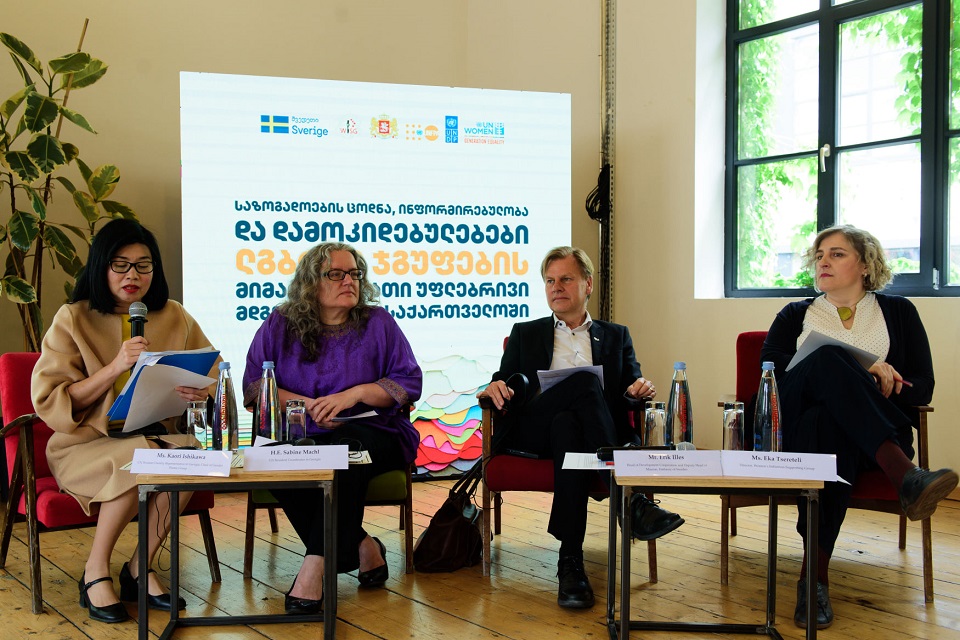LGBTQI community in Georgia experiencing greater acceptance, but still face challenges to their rights
Date:

LGBTQI communities are some of the most vulnerable and marginalized segments of Georgian society. Their members face discrimination and violence across different areas of life, and therefore significant challenges to the protection and realization of their rights still remain. This was highlighted by the key findings from two new studies, each presented at an event on 6 May 2022 that was attended by representatives of the legislative and executive branches of the Government, international organizations and the diplomatic corps, as well as human rights advocates and other activists.
These two studies were directed under the auspices of the UN Joint Programme for Gender Equality, funded by the Swedish Government. Under which, the Public Defender of Georgia produced a report on human rights within local LGBTQI communities, and the Women’s Initiatives Supporting Group conducted a study of societal attitudes, by discerning knowledge and information regarding LGBTQI groups and their rights in Georgia.
The studies each highlight that negative social attitudes towards LGBTQI communities is changing; compared to 2016, the number of people who have a sharply negative attitude has decreased significantly. The extent of respondents who consider the LGBTQI fight for equality to be an imposition of their lifestyle on others or to be propaganda has decreased by 20.6 percentage points (to 55.9 per cent). Negative attitudes towards the community’s human rights activists have also fallen by almost 20 per cent (to 56.8 per cent). In relation to this decline in homophobic attitudes, such positive changes are particularly exhibited by women, younger people and respondents living in the capital, in comparison to men and respondents from older age groups.
“It is promising to know that the situation regarding LGBTQI communities in Georgia has improved,” said Sabine Machl, UN Resident Coordinator in Georgia, during the presentation of these studies. “For example, their employment rate has increased. However, there are still negative attitudes and other challenges that need significant changes.”
According to the new surveys, a notable 48.2 per cent of respondents believe that LGBTQI people are in reality fighting for privileges and not for equality, while 39.5 per cent think that their rights are protected in Georgia. However, at the same time, 38.6 per cent of respondents believe that the state does not adequately respond to incidents of violence or discrimination against the LGBTQI community. The Public Defender’s report also includes recommendations produced for various government agencies, which are accessible to all interested parties.
This event was organized within the framework of the UN Joint Programme for Gender Equality, implemented by UN Women, UNDP and UNFPA, with generous support from the Swedish Government.